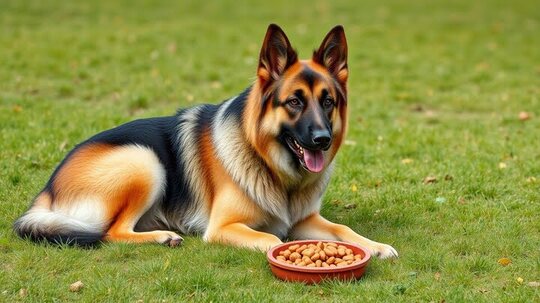A Dog Owner’s Perspective about Keeping Your Tiny Companion Healthy and Happy.
Small dog breeds hold a special place in the hearts of many pet owners. Their compact size, boundless energy, and charming personalities make them popular companions. As a veterinary professional and dog owner, I’ve seen firsthand the importance of tailored nutrition in maintaining the health and well-being of small dogs. While they may be small in stature, their nutritional needs can be unique and different from their larger counterparts. This blog delves into the specific dietary requirements of small dog breeds and guides to ensure they thrive.
1. Understanding the Metabolic Needs of Small Dogs
Small dogs, such as Chihuahuas, Dachshunds, Shih Tzus, and Toy Poodles, often have higher metabolic rates than larger dogs. Despite their diminutive size, they can burn calories at a much faster rate. This is largely due to their higher surface area-to-volume ratio, meaning they lose heat more rapidly and need more energy to stay warm and active.
For this reason, their diet needs to be calorie-dense. Small dog breeds generally require more calories per pound of body weight compared to larger breeds. While it may seem counterintuitive, a small dog can have a higher daily caloric requirement than a large dog relative to their size. Their energetic disposition means they need food that not only provides energy but also supports their overall health.
2. Portion Control and Frequency of Feeding
One key element in feeding small dogs is ensuring they get enough nutrition without overeating. Small breeds have smaller stomachs, meaning they can’t consume large meals at once. Overfeeding can lead to obesity, which is a serious concern in small breeds because even a small amount of extra weight can put stress on their joints, heart, and other organs.
I recommend feeding small dogs on smaller, more frequent meals throughout the day. Ideally, two to three meals per day can keep their energy levels stable and prevent issues like hypoglycemia (low blood sugar), which can be common in toy and teacup breeds. For some particularly tiny dogs, like the Chihuahua, who are prone to hypoglycemia, even four meals may be necessary.
3. Essential Nutrients for Small Dog Breeds
While all dogs require a balanced mix of proteins, fats, carbohydrates, vitamins, and minerals, small breeds benefit from specific considerations in their nutrient profile.
Protein
Protein is the building block of muscles, skin, and tissues. It’s vital for growth, repair, and maintenance. Small dogs, especially active breeds, require a good amount of high-quality protein in their diet. I recommend looking for dog food that lists a high-quality source of animal protein, such as chicken, beef, or fish, as the first ingredient. Protein is particularly important for breeds that are prone to joint or muscular issues, such as Dachshunds, as it helps maintain muscle mass and supports repair.
Fat
Healthy fats provide concentrated energy and are essential for small dogs’ overall health. Fats also contribute to maintaining a healthy coat and skin. Omega-3 and Omega-6 fatty acids are particularly important for keeping their coats shiny and preventing skin conditions, common in breeds like the Shih Tzu or Pomeranian. However, too much fat can lead to obesity, so it’s essential to find a balance. Opt for high-quality fats from sources like fish oil or flaxseed oil.
Carbohydrates
Carbohydrates provide quick energy for active small dogs, but not all carbs are created equal. Whole grains, sweet potatoes, and brown rice are excellent sources of complex carbohydrates that provide sustained energy. Avoid low-quality fillers like corn, wheat, and soy, as they don’t offer much nutritional value and can sometimes cause digestive issues or allergies in small dogs. Complex carbohydrates can help with energy balance and support healthy digestion, especially in breeds prone to gastrointestinal issues like the Maltese.
Vitamins and Minerals
Small dog breeds need a balanced mix of vitamins and minerals to support immune function, bone health, and overall vitality. For instance:
- Calcium and phosphorus: These are crucial for bone health, especially in breeds prone to dental issues like the Chihuahua.
- Vitamin E and A: Essential for a strong immune system and healthy skin and coat.
- Antioxidants like Vitamin C: These help reduce inflammation and support joint health, which is especially important in breeds prone to arthritis or hip dysplasia, such as the Pug or Boston Terrier.
Fiber
Small dogs often suffer from digestive issues, ranging from constipation to diarrhea. Fiber can help regulate their digestive system. However, it’s important not to overdo it. Too much fiber can interfere with nutrient absorption. Look for moderate fiber content from sources like pumpkin or beet pulp. These ingredients provide gentle support to the digestive system and help firm up stools.
4. Special Dietary Considerations for Small Breeds
Dental Health
Many small dog breeds are prone to dental problems due to their small mouths and crowded teeth. Poor dental hygiene can lead to infections, pain, and even more serious health issues like heart disease. Feeding kibble with a crunch can help reduce plaque buildup. Additionally, providing dental chews and incorporating raw bones (if appropriate) into their diet can promote healthy teeth and gums. Regular tooth brushing is also highly recommended.
Weight Management
Obesity is a common issue among small dog breeds, as it’s easy to overfeed them, and they may not always get the exercise they need. Obesity can lead to a host of health problems, including diabetes, heart disease, and joint issues. It’s important to monitor portion sizes carefully and choose a diet specifically formulated for small breeds. Look for formulas that offer lower fat and calorie content without sacrificing essential nutrients.
Hypoglycemia in Tiny Breeds
Hypoglycemia, or low blood sugar, is a condition that can affect toy breeds like Yorkies and Chihuahuas. These tiny dogs have fast metabolisms but small energy reserves. Symptoms of hypoglycemia include lethargy, shaking, weakness, and even seizures. To prevent this, feeding frequent meals throughout the day is crucial, particularly when they’re puppies. Having a glucose supplement on hand for emergencies can also be helpful.
Allergies and Sensitivities
Small breeds can be more prone to food allergies or sensitivities. Common allergens include chicken, beef, wheat, and corn. If your dog is experiencing chronic itching, ear infections, or digestive upset, it might be worth exploring a limited-ingredient diet or hypoallergenic dog food. Consulting with your veterinarian is key to determining the right diet for a dog with food sensitivities.
5. Choosing the Right Food for Your Small Dog
When selecting a dog food for your small breed, opt for one specifically formulated for small dogs. These diets are often designed with smaller kibble sizes, making it easier for small mouths to chew and digest. Additionally, small breed formulas are usually more calorie-dense to match their higher energy needs.
Look for high-quality ingredients and avoid foods filled with artificial preservatives, colors, or flavors. The label should indicate that the food meets the nutritional standards of the Association of American Feed Control Officials (AAFCO).
6. Homemade Diets and Raw Feeding
Some dog owners prefer to prepare homemade meals or follow a raw feeding regimen. While this can be a healthy option if done correctly, it requires careful planning to ensure your dog is receiving all the essential nutrients. As a veterinary professional, I recommend consulting with a veterinarian or pet nutritionist before switching to a homemade or raw diet to avoid nutritional imbalances, which can be particularly dangerous for small breeds.
7. Conclusion: Tailoring Nutrition for Longevity and Health
The nutritional needs of small dog breeds are as unique as their personalities. By understanding their specific dietary requirements, including the need for calorie-dense foods, frequent feeding, and specialized nutrients, you can support their overall health and longevity. Whether you’re feeding a tiny teacup breed or a robust miniature Dachshund, a well-balanced, high-quality diet is essential to ensure they live a long, healthy, and happy life.
As a dog owner and veterinary professional, I encourage you to work closely with your vet to find the best diet for your small dog’s individual needs. By providing them with the right nutrition, you’re giving them the best chance to thrive.



